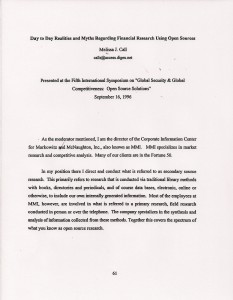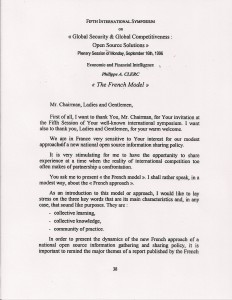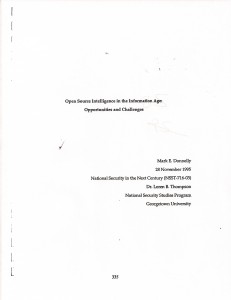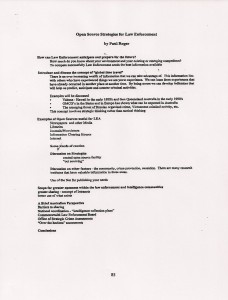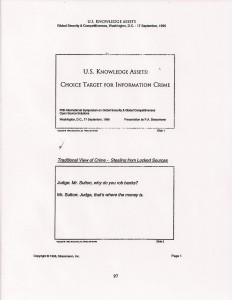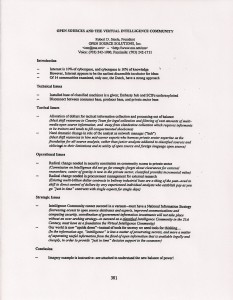
PLATINUM Jack Davis, Virtual Dean of US All-Source Analytic Corps
For over three decades, Jack Davis has been the heir to Sherman Kent and the mentor to all those who would strive to be the world’s most effective all-source intelligence analysts. As a Central Intelligence Agency analyst and educator, he combines intellect, integrity, insight, and an insatiable appetite for interaction with all manner of individuals regardless of rank and disposition. He is the most able pioneer of “analytic tradecraft,” the best proponent for the value of human analysis over technical processing, and one of those very special individuals who helped define the end of 20th Century centralized analysis and the beginning of 21st Century distributed multinational multiagency analysis.
Note: Awarded in advance of IOP '07 to celebrate Jack Davis' 50th uninterrupted year as an all-source analyst and mentor to all analysts.
The Compendium is 45 pages in all and consists of a Foreword, Summary, and then ten Notes to Analysts:
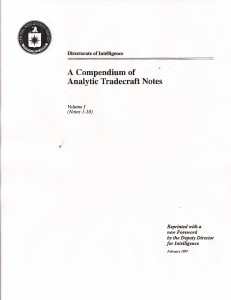
Note 1: Addressing US Interests in DI Assessments
Note 2: Access and Crediblity
Note 3: Articulation of Assumptions
Note 4: Outlook
Note 5: Facts and Sourcing
Note 6: Analytic Expertise
Note 7: Effective Summary
Note 8: Implementation Analysis
Note 9: Conclusions
Note 10: Tradecraft and Counterintelligence

